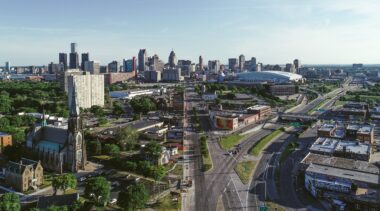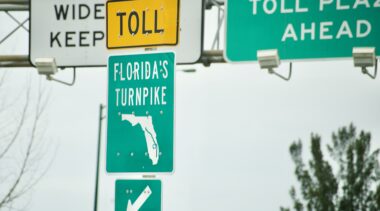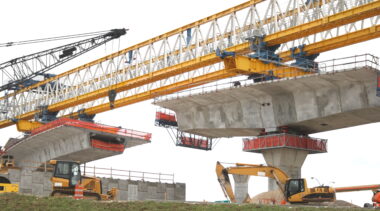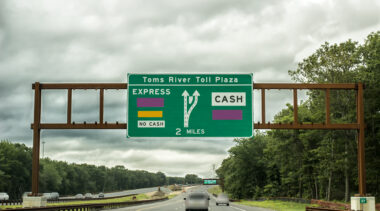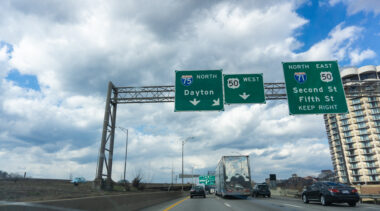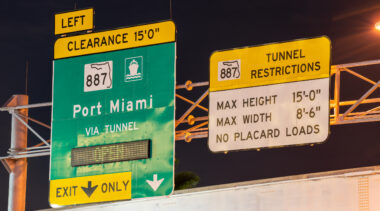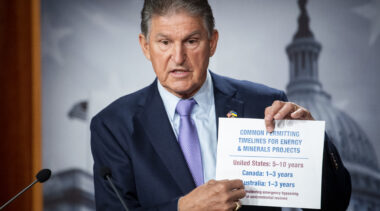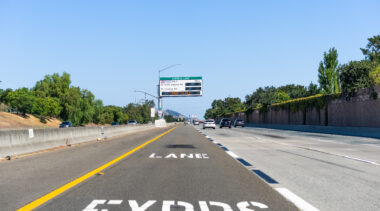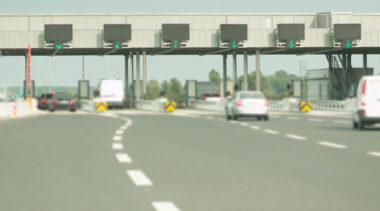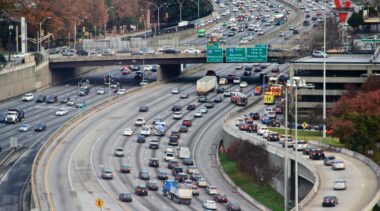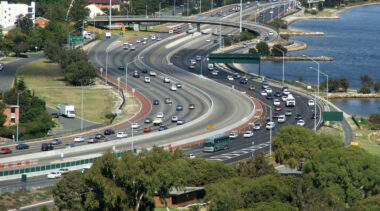Robert Poole is director of transportation policy and Searle Freedom Trust Transportation Fellow at Reason Foundation.
Poole, an MIT-trained engineer, has advised multiple presidential administrations and transportation departments on infrastructure issues.
Surface Transportation
In the field of surface transportation, Poole has advised the Federal Highway Administration, the Federal Transit Administration, the White House Office of Policy Development, National Economic Council, Government Accountability Office, and state Departments of Transportation in numerous states.
Poole's 1988 policy paper proposing privately financed toll lanes to relieve congestion directly inspired California's landmark private tollway law (AB 680), which authorized four pilot toll projects including the successful 91 Express Lanes in Orange County. More than 20 other states and the federal government have since enacted similar public-private partnership legislation. In 1993, Poole oversaw a study that coined the term HOT (high-occupancy toll) Lanes, a term which has become widely accepted since.
California Gov. Pete Wilson appointed Poole to the California's Commission on Transportation Investment and he also served on the Caltrans Privatization Advisory Steering Committee, where he helped oversee the implementation of AB 680.
From 2003 to 2005, he was a member of the Transportation Research Board's special committee on the long-term viability of the fuel tax for highway finance. In 2008 he served as a member of the Texas Study Committee on Private Participation in Toll Roads, appointed by Gov. Rick Perry. In 2009, he was a member of an Expert Review Panel for Washington State DOT, advising on a $1.5 billion toll mega-project. In 2010, he was a member of the transportation transition team for Florida's Governor-elect Rick Scott. He is a member of two TRB standing committees: Congestion Pricing and Managed Lanes.
Aviation
Poole is a member of the Government Accountability Office's National Aviation Studies Advisory Panel and he has testified before the House and Senate's aviation subcommittees on numerous occasions. Following the terrorist attacks of Sept. 11, 2001, Poole consulted the White House Domestic Policy Council and the leadership of the House Transportation & Infrastructure Committee.
He has also advised the Federal Aviation Administration, Office of the Secretary of Transportation, White House Office of Policy Development, National Performance Review, National Economic Council, and the National Civil Aviation Review Commission on aviation issues. Poole is a member of the Critical Infrastructure Council of the Los Angeles Economic Development Corporation and of the Air Traffic Control Association.
Poole was among the first to propose the commercialization of the U.S. air traffic control system, and his work in this field has helped shape proposals for a U.S. air traffic control corporation. A version of his corporation concept was implemented in Canada in 1996 and was more recently endorsed by several former top FAA administrators.
Poole's studies also launched a national debate on airport privatization in the United States. He advised both the FAA and local officials during the 1989-90 controversy over the proposed privatization of Albany (NY) Airport. His policy research on this issue helped inspire Congress' 1996 enactment of the Airport Privatization Pilot Program and the privatization of Indianapolis' airport management under Mayor Steve Goldsmith.
General Background
Robert Poole co-founded the Reason Foundation with Manny Klausner and Tibor Machan in 1978, and served as its president and CEO until the end of 2000.
He was a member of the Bush-Cheney transition team in 2000. Over the years, he has advised multiple presidential administrations on transportation policy.
Poole is credited as the first person to use the term "privatization" to refer to the contracting out of public services and is the author of the first-ever book on privatization, Cutting Back City Hall, published by Universe Books in 1980. He is also editor of the books Instead of Regulation: Alternatives to Federal Regulatory Agencies (Lexington Books, 1981), Defending a Free Society (Lexington Books, 1984), and Unnatural Monopolies (Lexington Books, 1985). He also co-edited the book Free Minds & Free Markets: 25 Years of Reason (Pacific Research Institute, 1993).
Poole has written hundreds of articles, papers, and policy studies on privatization and transportation issues. His popular writings have appeared in national newspapers, including The New York Times, The Wall Street Journal, USA Today, Forbes, and numerous other publications. He has also been a guest on network television programs such as Good Morning America, NBC's Nightly News, ABC's World News Tonight, and the CBS Evening News. Poole writes a monthly column on transportation issues for Public Works Financing.
Poole earned his B.S. and M.S. in mechanical engineering at the Massachusetts Institute of Technology (MIT) and did graduate work in operations research at New York University.
-
Countering attacks on private sector investment in infrastructure projects
Private infrastructure investment firms have a good track record of funding large projects, guaranteeing long-term maintenance, and pioneering innovation.
-
The trucking industry is increasingly examining mileage-based user fee options
The trucking industry has begun to acknowledge the impending decline of fuel-tax revenues.
-
Tolling and mileage-based user fees would help produce better highways for Michigan
Michigan's highways need fixing, but the state is woefully short of the transportation funding required.
-
Examining the trucking industry’s opposition to tolling highways
Three of trucking’s four main concerns about tolling are valid—and fixable by legislation.
-
Sustainable highway funding requires charging the drivers who use them
The true costs of building and maintaining highways and bridges should be paid for by those who use them.
-
Stop disguising the real costs of building and maintaining highways and bridges
Today, rather than being paid for by their users, highways are increasingly subsidized by federal taxpayers—or their grandchildren.
-
Examining recent attempts to apply equity policies to toll lanes
Some metropolitan planning organizations and state transportation departments are looking into offering discounts or free trips in express toll lanes.
-
The costs and benefits of rebuilding the Interstates
A study estimates the economic value of the Interstate system to be $742 billion a year.
-
Transportation departments embrace revenue-risk public-private partnerships
Revenue-risk P3s create a customer-provider relationship that is absent when the state builds and maintains a highway based on what the legislature decides.
-
Express lanes for electric vehicles should be a bigger part of Denver’s long-range transportation plan
With today’s large-scale decentralization of homes and jobs, it is increasingly difficult to serve large numbers of workers via mass transit.
-
Finding consensus on environmental and permitting reforms to build needed infrastructure
Needless delays, bureaucracy, and litigation are increasing costs and preventing the U.S. from building 21st-century energy projects, highways, transit, and more housing.
-
Express toll lanes can reduce traffic and improve bus service
Federal Highway Administration data shows more than 60 express toll lane projects are in operation across the country.
-
The last gasp of 20th-century NASA
The new space paradigm means NASA should buy services from the rapidly developing competitive marketplace, not through its traditional procurement process.
-
Dealing with public opposition to new tolls
The current 20th-century funding system disguises the real cost of building and operating major highways and bridges.
-
Public pension funds and public-private partnerships could increase funding for transportation infrastructure
Public pension funds could invest in public-private partnerships that produce more greenfield and brownfield transportation projects across the United States.
-
Why Michigan should replace gas taxes with mileage-based user fees
State policymakers should start thinking about a permanent replacement for the gas tax, such as mileage-based user fees.
-
Shifting away from gas taxes to modernize Interstate highways
About a dozen states have conducted federally-assisted pilot projects in which motorists and truckers tested mileage-based user fees.
-
Lessons from San Diego’s proposed mileage fee
Mileage-based user fees should replace gas taxes, not be added to existing fuel taxes.



